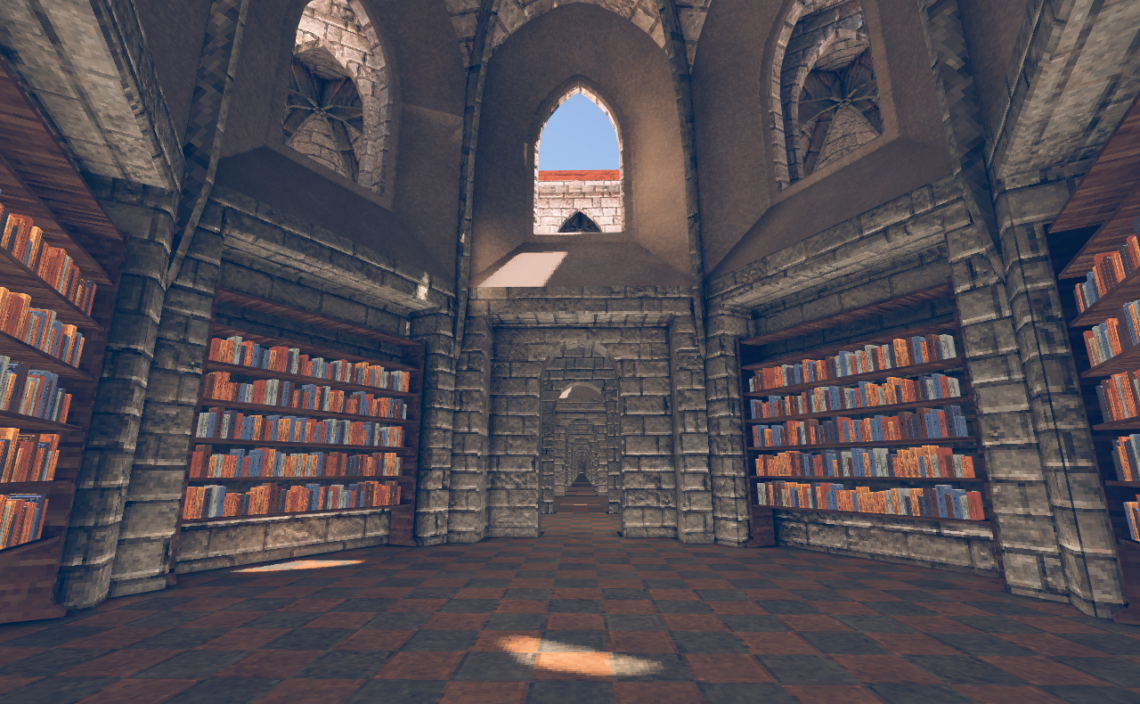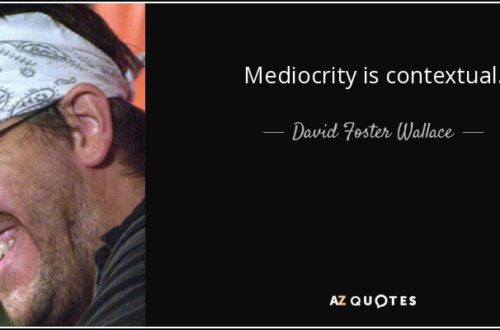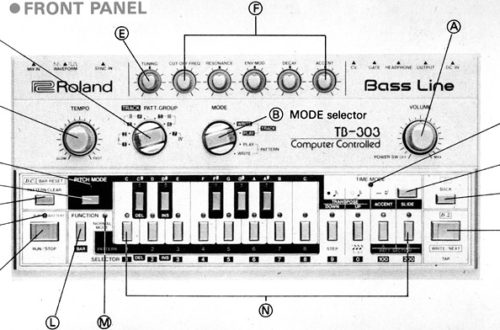“The universe (which others call the Library) is composed of an indefinite and perhaps infinite number of hexagonal galleries, with vast air shafts between, surrounded by very low railings. From any of the hexagons one can see, interminably, the upper and lower floors. The distribution of the galleries is invariable. Twenty shelves, five long shelves per side, cover all the sides except two; their height, which is the distance from floor to ceiling, scarcely exceeds that of a normal librarian. One of the free sides leads to a narrow hallway which opens onto another gallery, identical to the first and to all the rest. To the left and right of the hallway there are two very small closets. In the first, one may sleep standing up; in the other, satisfy one’s fecal necessities. Also through here passes a spiral stairway, which sinks abysmally and soars upwards to remote distances.” – Jorge Luis Borges, The Library of Babel
The Library of Babel is one of my favorite stories by one of my moat beloved authors Jorges Luis Borges. It combines several of Borges recurring themes: words, writing, infinities, and labyrinths. The image of a monumental, indifferent megastructure, an infinite library filled with infinite permutations of letters and words echoes across the decades to feel incredibly contemporary to one of my personal obsessions, procedural worlds and algorithmic art. What would Borges have made of our contemporary capacity to use code (a kind of writing) to generate near endlessly extending and varying worlds and works of art? In this sense his story feels prophetic. His depiction of the library as a kind of nightmarish and unwieldy sea of information in which cults form as they search for the book that will help them decode it also feels like a predictor of our current ‘discovery problems’ in which we rapidly approach an infinite number of human monkeys with typewriters creating and publishing ideas in every medium onto the public internet.
AI research seeks to create general AI which can think, learn and achieve sentience but perhaps a step along the way is a more limited AI which exists only in the realm of words, a much flatter landscape. Presumably as thinking machines achieve various levels of consciousness or consciousness like states some of them will turn their attention, or have it directed to, the task of writing. Theoretically these machine writers could write and compose words faster than any human could read them, even a human who started reading immediately when the writing began. At this point we might achieve Borges vision, as long as these imagined writers were willing to separate their thoughts into volumes “of four hundred and ten pages; each page, of forty lines, each line of some eighty letters”. Could a machine intelligence trained only on the existing body of written text in the human world write something which we would find meaningful? A kind of purely reconstituted literature with no direct seed of human experience? In my opinion many writers write this way now, assembly books as a kind of collage of read rather than lived experiences. Would we be able to tell the difference?
I would be disappointed if my community of procedural generation enthusiasts had not already made an attempt at the task. Happily, game developer Nothke has given us a preview of the library with his entry for ProcJam 2015/16 entitled “Library of Blabber” in which he generates books using Markov Chains. You can download his library from the wonderful library of games Itch.io here.





